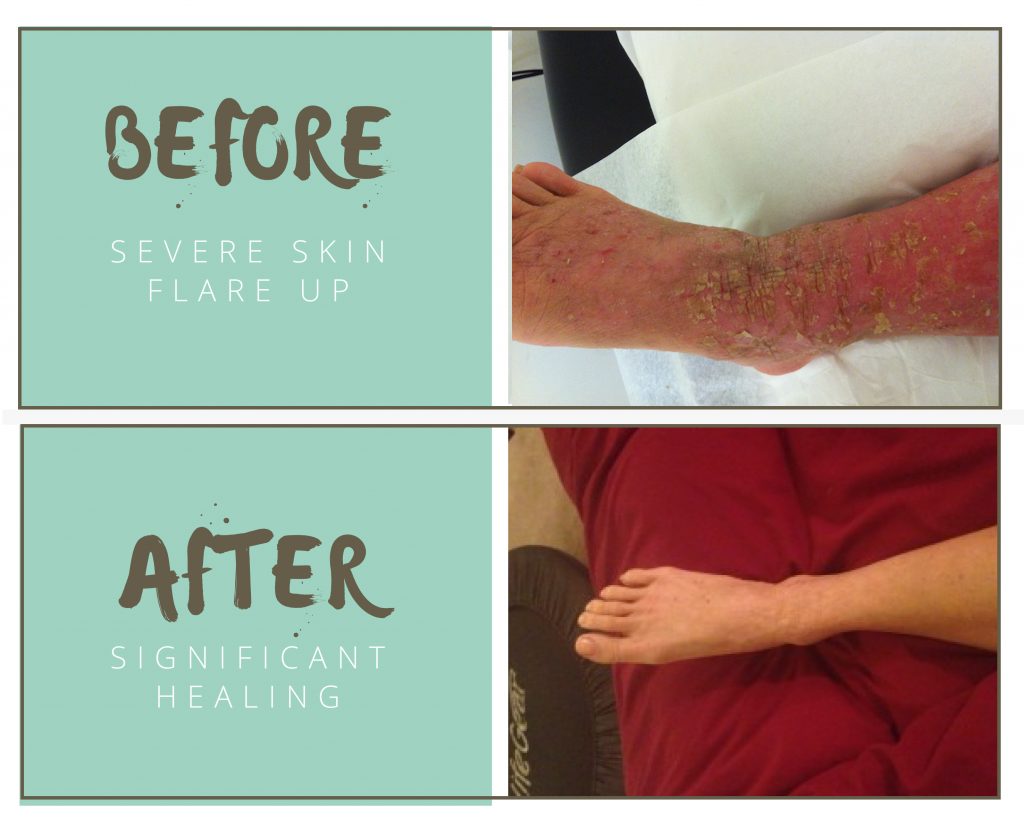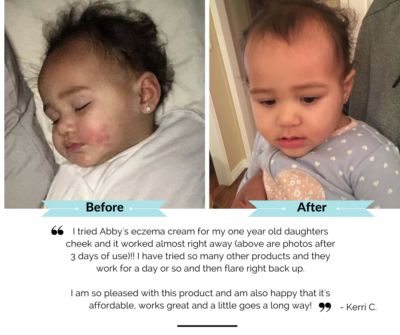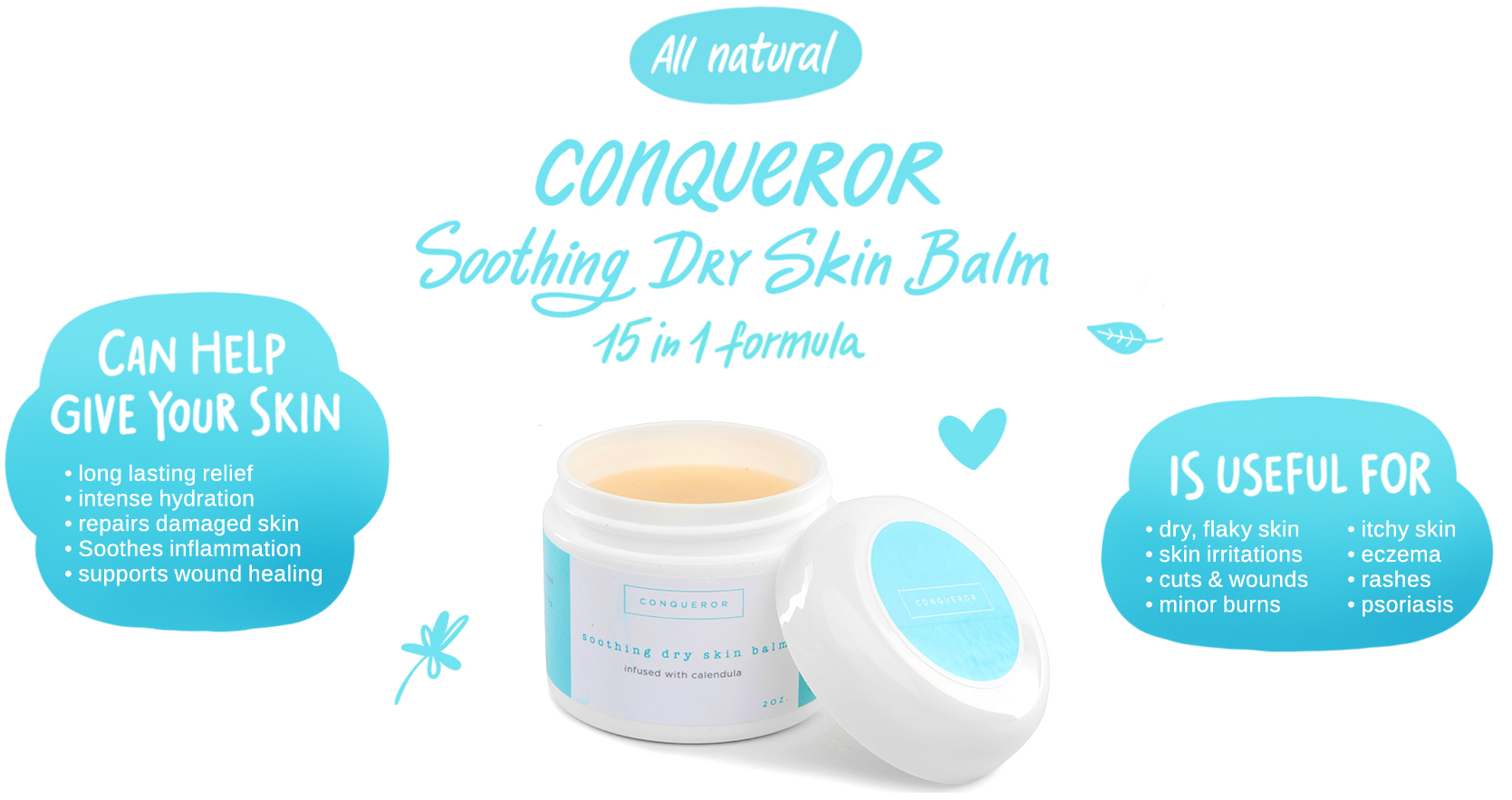Another great post from itchylittleworld.com – Natural remedies for eczema to soothe your itchy little world..
Something that’s very important to us at this blog is to provide you with helpful resources and natural treatments that can bring you eczema relief. And NOTHING makes us happier than hearing when our recommendations or tips work for you!
This week, we’re sharing a review from a customer who recently purchased the Conqueror Soothing Eczema Balm.
Check out what he had to say:
“I am currently in an extreme eczema flare up and the intense itchiness is brutal. I also work with the public, so even though I can wear long sleeves to hide the signs of eczema I still look like a goof scratching like a fiend. When I use the Conqueror Soothing Eczema Balm, within a minute or two I have much less itchiness. It lasts for around two or three hours and then I reapply. This is AWESOME!!
The eczema also caused a thickening of skin on the arms and face from my constant scratching, especially at night when I am sleeping not really aware of the scratching. So I used the EczeHerbal #3 on my face and arms and after a day the thickness went away! My skin is starting to look better now, and of course I am addressing the situation by eating correctly as well.
I appreciate your topical products because of the natural ingredients. The products that I would buy from the pharmacy never addressed the itchiness and there were ingredients in them that I know were not good for my system. The medication I received from the dermatologists when I was first diagnosed years ago were simply abysmal. They caused more flare ups and gave my skin the look of a burn victim.
My last major, whole body flare up was 2 years ago and within that time frame I also experienced smaller more localized eruptions on my neck and arms. I could address quickly by altering my diet, taking some probiotics and digestive enzyme supplements. I am grateful for your company and the products that you supply. You may have noticed that I have already placed another order!” – Chris B.
That review still has us feeling overwhelmed with gratitude! We’re thrilled Chris has seen so much improvement with the various forms of eczema he has AND we’re equally happy that he’s been able to alter his diet and see results based on that as well. We are BIG believers in eczema elimination diets and healing from within.
Curious about the EczeHerbal #3 Chris mentions? Learn more about the full line of EczeHerbal products with Traditional Chinese Medicine HERE.
If you haven’t tried the Conqueror Soothing Eczema Balm yet, here are 4 reasons why you should try it today:
- A 15-in-1 Natural Formula: Unlike many other products on the market today, this balm is 100% natural and contains ingredients that will soothe and moisturize inflamed skin. It contains superfood ingredients that are equally good digested and applied to the skin like aloe vera, avocado oil, rosehip seed extract, calendula oil, and much more.
- Hypo-allergenic: If you or your little one suffer from a variety of allergies or have trouble finding products that don’t trigger a reaction, then this balm is a perfect alternative as it contains ingredients that are not known to commonly trigger reactions.

- Not only for Eczema: Not only does this balm work on eczema prone skin, but it’s also a great moisturizer for dry skin, psoriasis, stretch marks or burns. The aloe vera in this balm helps repair damaged skin, while the calendula oil speeds wound healing.

- Safe for all ages: The ingredients used in this balm are safe for everyone including babies, children and pregnant women!


Have you tried the Conqueror Soothing Eczema Balm yet?
We’d love to hear what you think in the comments below!
Why you Should Try Conqueror Eczema Balm appeared first on itchylittleworld.com. Come read more about natural remedies for eczema!





